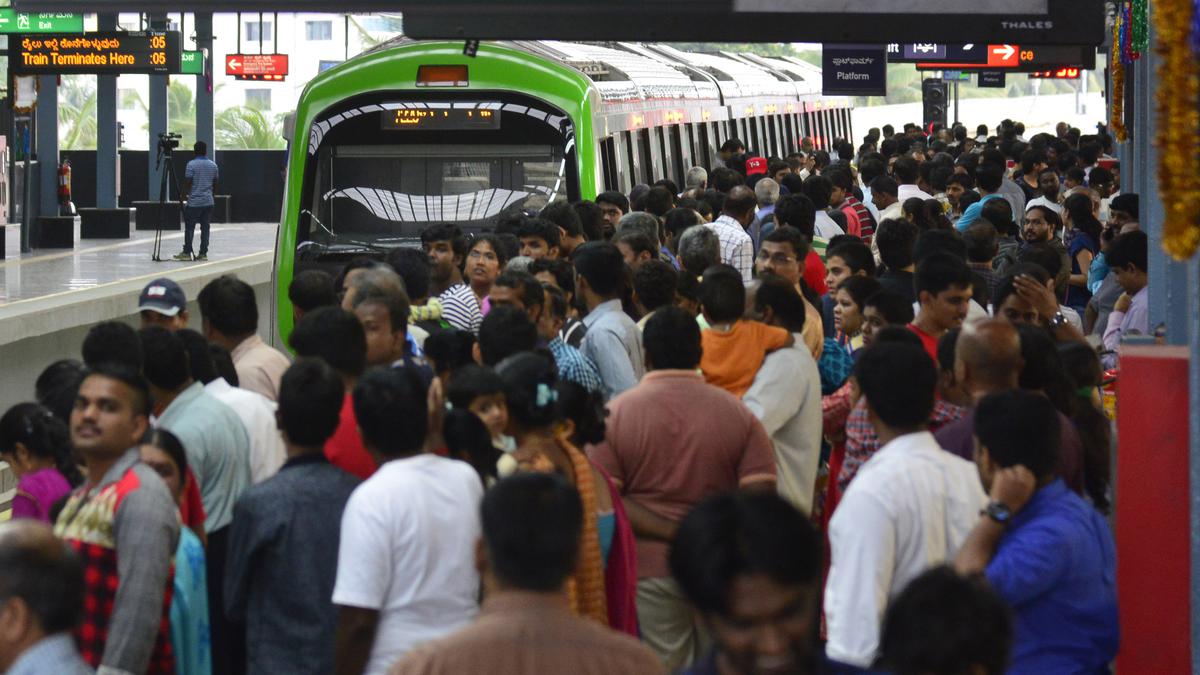
Why North Bengaluru is booming Premium
The Hindu
North Bengaluru, which encompasses areas such as Banaswadi, Hennur, Jakkur, HBR Layout, Jalahalli, Yelahanka and Hebbal, may have once been dismissed as a suburban, industrial or agricultural belt. But that has changed dramatically now
When Vandana Swaminathan moved from Mumbai to Bengaluru, back in 2017, she was very clear about one thing: she did not want her daily commute to her office to be a hassle. Since her workplace was in Devanahalli, in the North-East part of Bengaluru, she began looking for homes in and around North Bengaluru, settling for a gated community in Yelahanka. “It was the closest habitable place to work, and was located along the office bus route,” recalls Ms. Swaminathan, who works in the oil and gas sector.
While the area was convenient from a work perspective, there were other issues, she soon discovered. “There wasn’t a mall close by,” she says. “I found myself travelling anywhere between 16-20 km to watch a movie or to shop,” she recalls. Since then, however, things have changed drastically. “There is a lot more happening,” she says, pointing out that there are a lot more malls and restaurants in North Bengaluru today than ever before. “It is not quite there yet, but they are trying.”
North Bengaluru, which encompasses areas such as Banaswadi, Hennur, Jakkur, HBR Layout, Jalahalli, Yelahanka and Hebbal may have once been dismissed as a suburban, industrial or agricultural belt. This, clearly, has changed. “North Bengaluru is rapidly emerging as the new commercial centre of the city, attracting numerous research and development, aerospace, automobiles, and pharmaceutical companies to establish their operations in the area,” points out Viswa Prathap Desu, Chief Sales Officer, Residential, Brigade Group, adding that this commercial growth has also fuelled the demand for residential properties. “Also, with the Metro work in progress, the connectivity to the city is bound to improve,” he says.
While the construction of the airport at Devanahalli in 2008 was instrumental in triggering the area’s growth, the pandemic and its aftermath appear to have catalysed it. In the last three years or so, a number of infrastructural projects, both residential and commercial have mushroomed and continue to, across this part of town. “North Bengaluru is a market that is growing right now,” agrees Anirudh Kheny, partner at hospitality brand Keen Mustard Ventures, which is in the process of establishing a new outlet in this part of town, though he prefers not to specify the exact location. “The biggest advantage is the metro and airport. That is going to bring way more footfall,” he says.
For starters, as he points out, there are a lot of interesting things happening in and around the airport itself. He isn’t wrong, going by several recent reports. From a dedicated startup park to a greenfield logistics park, Boeing’s plan to build a new campus here and the latest, Foxconn’s plan to start manufacturing iPhones at its Devanahalli plant, this area is poised to become a serious employment generator in the not-so-distant future. Already there are more migrants in North Bengaluru than there used to be while he was growing up, says Dr. Ramesh C, who was born and has lived in Jalahalli Cross for the past 31 years. “People come and settle in this part of town for work,” he says, adding that the metro connectivity has made a lot of difference too.
And yes, it helps that the area is close to the airport itself, ensuring that the frequent flier does not need to travel too much to enter or leave town, a decisive advantage in a city known for its traffic problem. “Being so close to the airport makes life very easy,” agrees Ms. Swaminathan, who travels fairly regularly, something Ranveer Sabhani, the Business Head, South India of the Impresario Entertainment & Hospitality Pvt. Ltd, which owns restaurant brands, Smoke House Deli and Social, agrees with too.
“Why would anyone even want to go to the city if their work is in North Bengaluru?”, he asks. All one needs to do is land here, finish work and head over to one of the great hotels in this part of town to spend the night, he believes, pointing out that despite the ARR of many of the hotels here being amongst the highest in Bengaluru, the occupancy rate is 80-90%. “My understanding is that it is a very lucrative market,” says Sabhani, adding that Social has three outlets in North Bengaluru.

NDA government in A.P. neglecting students and education sector badly hit, alleges Jagan Mohan Reddy
YSR Congress Party (YSRCP) president Y.S. Jagan Mohan Reddy has criticised the National Democratic Alliance (NDA) government in Andhra Pradesh, accusing it of neglecting all sectors and not paying the fee reimbursement benefits to the students.










